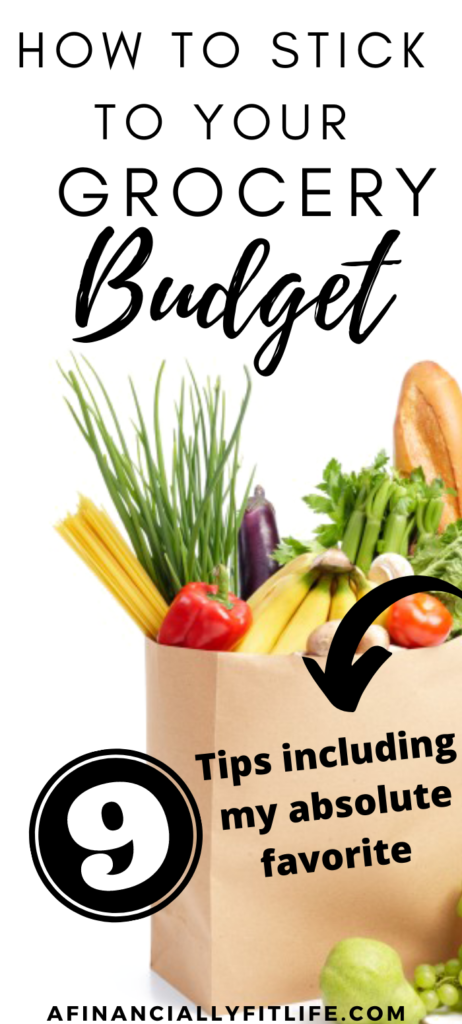Does going over your grocery budget every month have you frustrated? Learn my top 9 tips on how to stick to your grocery budget.
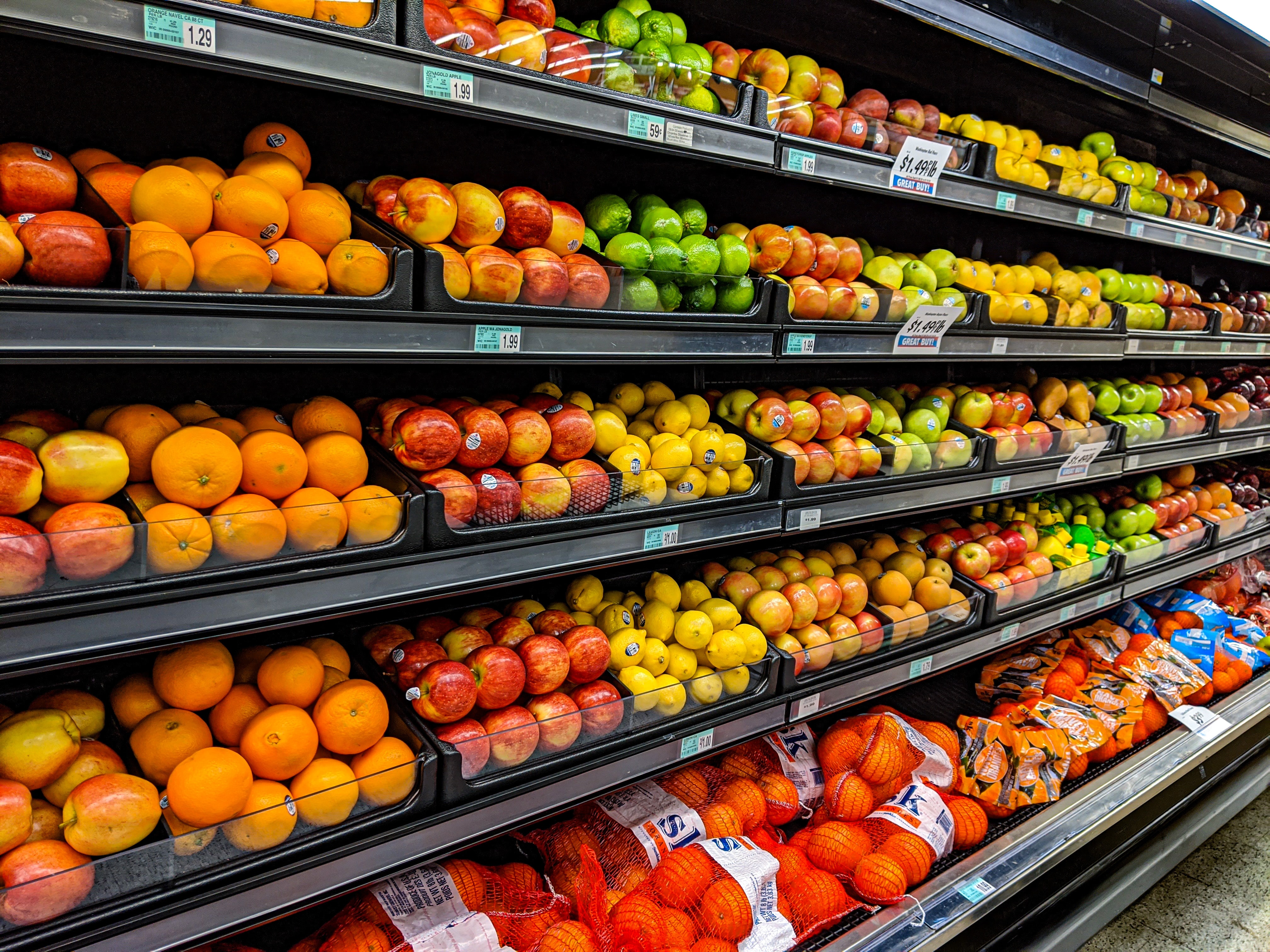
Since the beginning of the year, we have been talking very technically about building a better financial life.
Creating and sticking to a budget plays a large part in that.
So what happens when you are trying to budget but constantly go over in one category?
It can be frustrating and make you often times feel like quitting.
But there are ways to figure out where the problem is and techniques you can use to stay within budget.
I think many of us can agree groceries is one of those categories.
Here are some tricks to help you stick to your grocery budget that you can try right now!
Building a grocery budget
When first did my spending analysis, I found out that Mike and I were spending over $1,000 a month on groceries. FOR TWO PEOPLE.
If you don’t know what a spending analysis is, check out my How to Pay off Debt in 2021 post.
$1,000 a month was shocking to me.
I thought that is a ridiculous amount of money on food I can cut that back.
So I set our grocery budget for $600.
And we went over. And over. Every month we struggled and went over.
We weren’t spending $1,000, but I wasn’t hitting my goal of $600. And it was annoying.
But even after budgeting for over four years, it is still the category I struggle with the most.
Why?
It is easy to overspend.
So how can you stick to your grocery budget?
Here are some tips, starting with the most obvious.
You need a meal plan.
Yes, that thing you judge your aunt’s for doing and assume it is for large families or poor people.
If you do not plan out your meals, you will overspend on groceries.
Meal planning also leads to less food waste and often healthier eating habits. So why not eat healthy, waste less, and save money too?
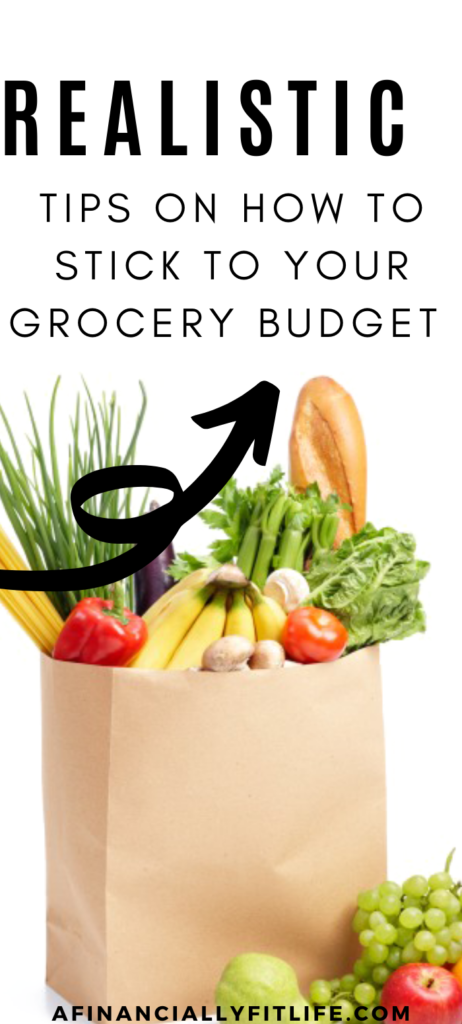
This topic deserves its own blog post, but just know that if you want to stick to your grocery budget planning will 100% help.
Make sure your grocery budget is realistic
This is the harsh reality.
Sometimes our grocery budget is unrealistically low. I know the goal is to cut expenses where possible, but sometimes we have to admit it is unrealistic.
Here are some things to consider…
Does that amount of money support your eating habits or dietary needs? Is it including alcohol purchases or household products? Are you buying pet food or self-care items with your groceries? How many people are you feeding?
If you are doing everything you can to stay within budget and are always going over, it might be too low.
When I first started budgeting, I would see people in the community spending much less than I was. Some even $100-$200.
Realistically I can’t imagine trying to spend that amount. I still go over our $700 budget sometimes.
If this is you, how can you readjust?
Try just upping your limit by increments of $50 and see if that helps.
Also, make sure you have tried all my other tips, like grocery pickup and reworking your categories.
Habit change
Groceries can be a budget-buster simply becuase we have built bad habits.
What do I mean when I say bad habits?
Stopping at the grocery store multiple times a week, assuming you don’t have everything you need.
Cooking meals with complicated ingredients you hardly ever use.
Having a more bougie palette buying name brand products, expensive meat cuts, going to more expensive grocers.
If you think your groceries are a reason why your budget isn’t working, re-evaluate your habits.
Maybe try monthly grocery shopping. Use simple recipes with fewer ingredients, test yourself to make a meal without stopping at the store.
And create new habits, like meal planning.
Challenge yourself so when you feel like you need to go to the store to make a meal see what you can make with what you have.
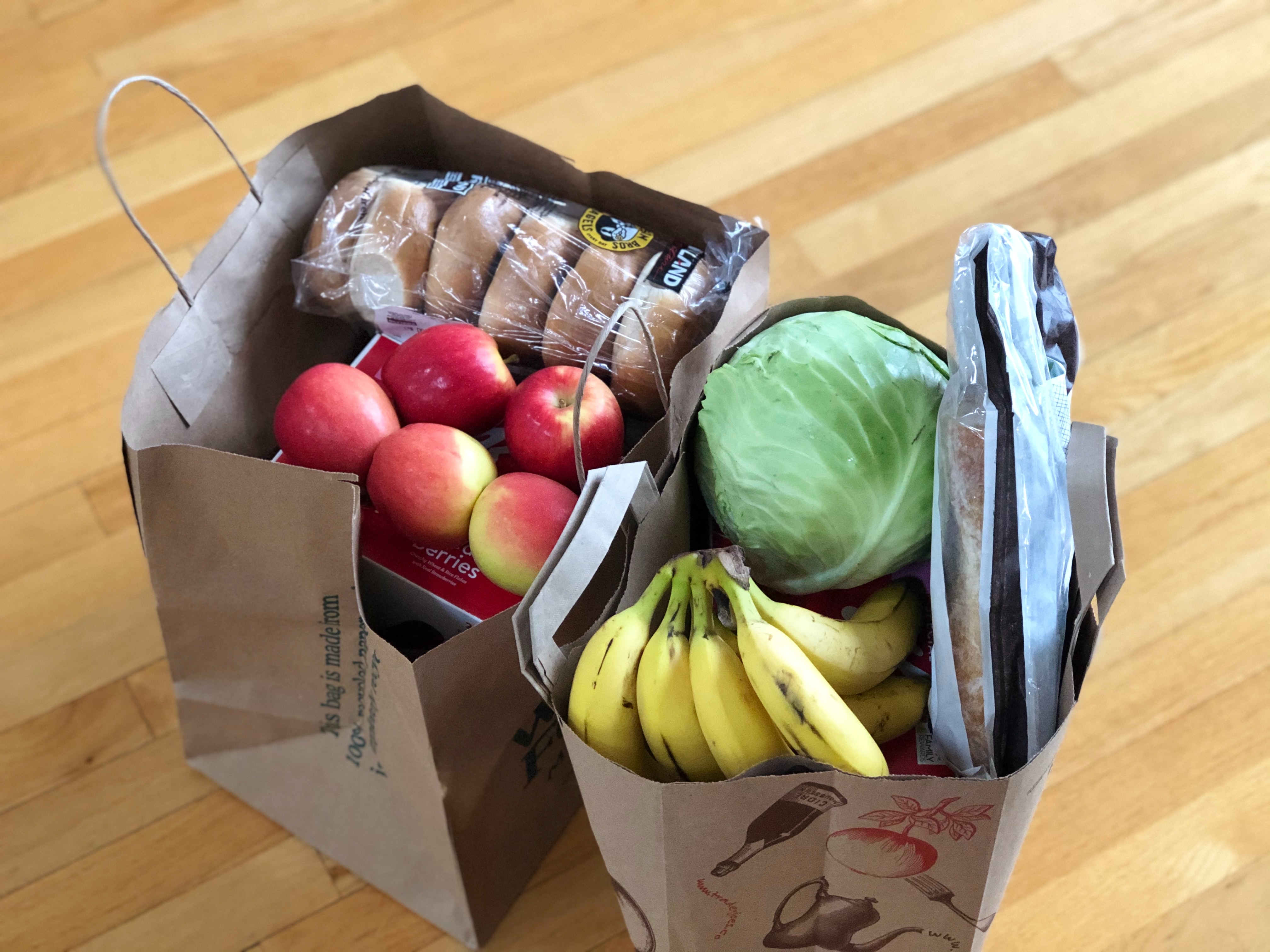
Stop walking down aisles where you know you don’t need anything.
Only shop on Sunday and if you forgot something and it’s not urgent you make do.
Don’t go to the store without a list, and if it’s not on the list don’t buy it.
You may not realize these behaviors because they are automated, but they can make a difference.
Use grocery pick-up
I can not stress this enough. Shopping online is the way you stay in budget.
This was the absolute game changer for me. Not going in the store.
I so wish Trader Joe’s and Aldi participated in their own pick-up options becuase that would be epic.
There are a lot of benefits to online shopping.
Shopping online allows you to buy what you need, at the lowest price, without going over.
It is easy to make adjustments as well as see which items are the best price. You can always see your total and take things out of your cart that you don’t need.
Overspending on groceries has a lot to do with over-buying.
Almost out of a cleaning product? You buy a new one and then it lasts you for another month.
See a new product on the shelf you want to try? You buy it.
Go in without a meal plan and, you buy more produce than you could ever consume.
Not going in the store is less tempting. Temptations can lead to overspending.
Your shopping backward
This might be my favorite tip because I don’t think it’s talked about enough.
You may be going over your grocery budget becuase your shopping backward.
You need to shop your own home BEFORE you go grocery shopping.
To keep your grocery budget low, base your meal plan on what you already have.
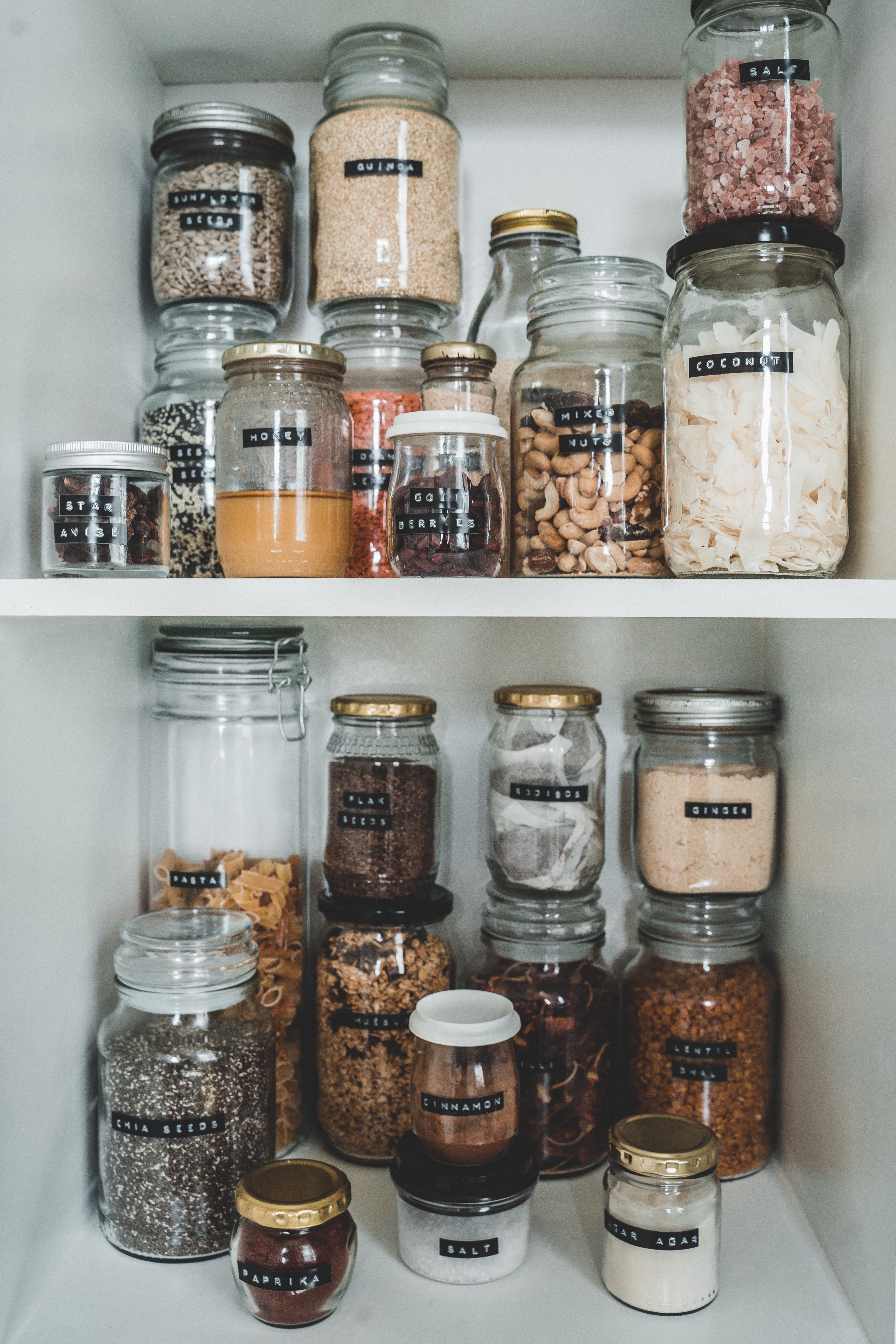
And I bet you have way more than you think.
Before shopping sales, shop your pantry, fridge, and freezer first. You will waste less food, and spend less on groceries.
Here is my favorite tip
Before you meal plan or go to the store, pull out 3-5 items from your pantry, fridge, or freezer that you need to use that week.
Put them on your counter.
A can of beans, bag of rice, some frozen chicken, and a jar of sauce.
Then make your meal plan.
And if you want to make something more creative or use a recipe type in the search bar recipes using rice.
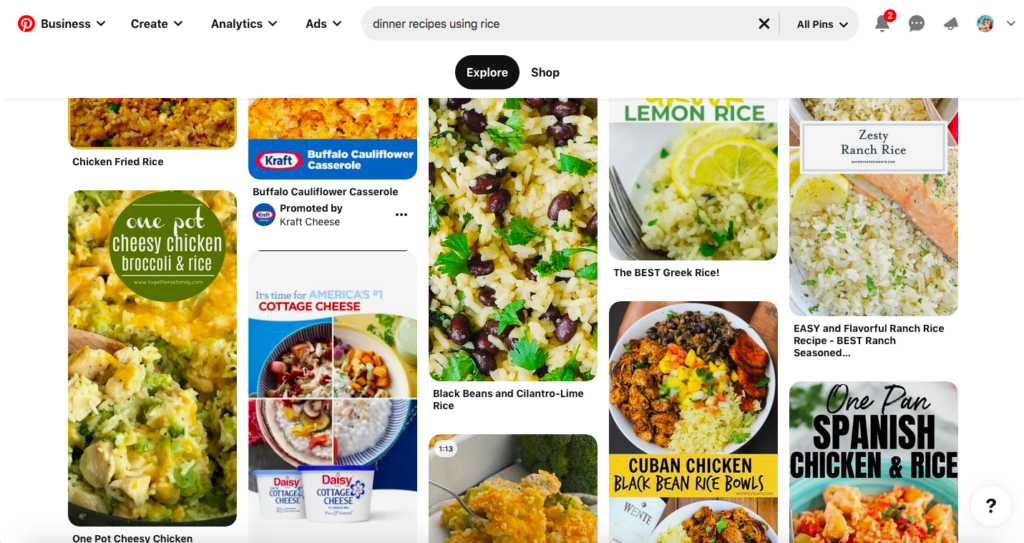
A good way to save money is by reducing your list. Reduce your list by using what you already have.
And I guarantee you have a stash of food to pick from.
Using Cash
We have all heard about how using cash will cause you to spend less money.
NBC News has an article on How to save money with a cash-only budgeting system that proves its worth. The author, Holly Trantham, talks about how she tried using only cash to spend less money. And it worked.
To help lower the temptation for over spending on groceries, try using cash.
I know that using cash is inconvenient but, it has been proven to help people spend less money.
To make this work, take out the cash you need each month or week and only spend that amount.
If your monthly grocery budget is $600, take out the $600 and, when it is gone, it is gone.
The inconvenience of stopping at an ATM will help you spend less, and when the money is gone, you would be surprised at how well you can make things work.
Change your strategy
Learning how to stick to a grocery budget may mean changing the strategy you use.
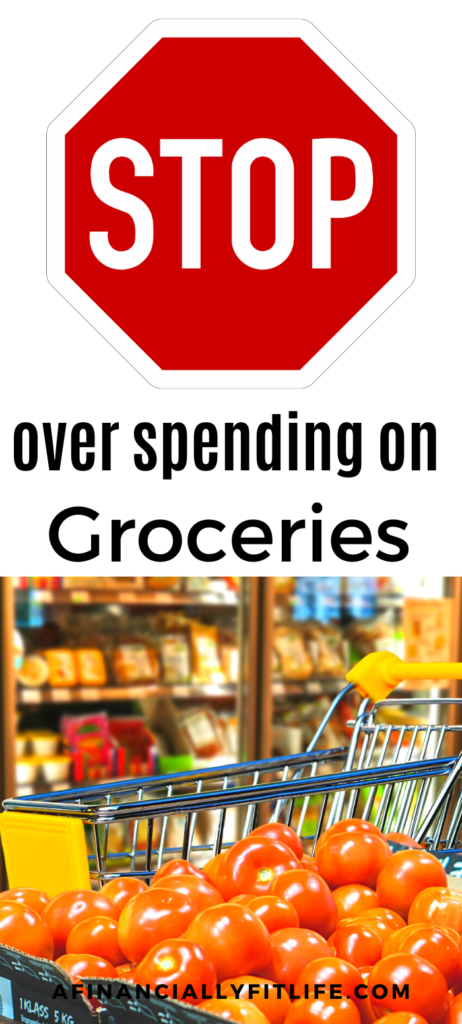
Most of us probably allot an amount of money per month to spend. But what if there is an extra weekend in the month?
Usually, we shop on weekends and, if there are five weekends in a month, that is an extra week worth of groceries. Bam overbudget!
To fix this you can budget per week instead of per month.
For example, give yourself $150 per week for groceries. That is $7,800 per year. So, if there is a month with 5 Sundays’s the budget doesn’t get off track.
Maybe you need to try monthly shopping or move from monthly shopping to weekly shopping.
This also may include creating different cateogries.
If you build household products into your grocery budget, maybe try removing them and giving them their own.
Maybe take your pets food and put it in a pets sinking fund instead.
Create a category for alcohol that you can pull from every month.
Sometimes your budget just needs a little reworking to help you stick to it.
Rollover your amount
A lot of us don’t consider the fact that some months may be more expensive than others.
Some months it seems like we are out of everything all at once. And other months you may be under.
Rollover that money.
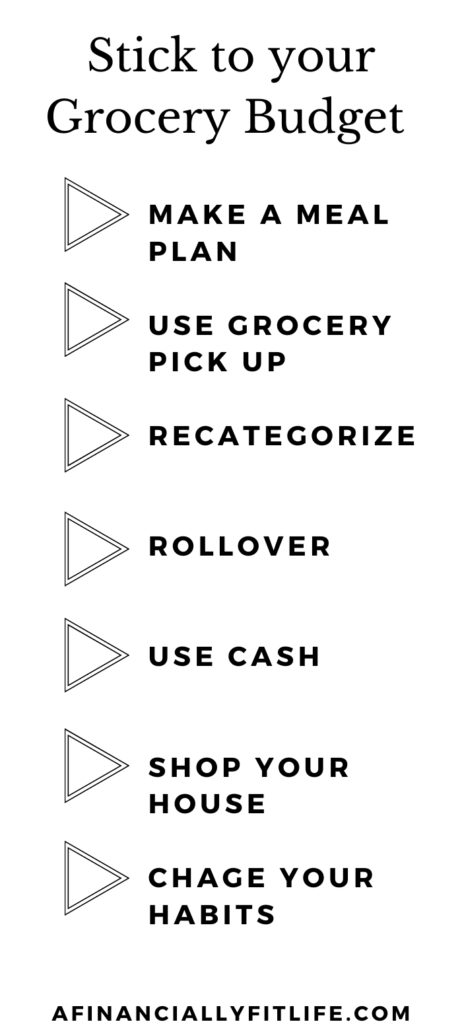
If you have money leftover in your budget for one month, roll over the extra into the next.
YNAB actually does this for you. If you use Everydollar or your own budgeting method, you can do this yourself. Just take the extra from one month and put it in the next.
Lets say your grocery budget is $600.
Your 3 month amount would total $1,800. 600 x 3.
In December you spent $667, January $554, and February $560.
You used $1,781 of that $1,800.
So you add the $19 to your march budget making it $619. You do this every month moving forward.
Get what I’m saying?
And you may be thinking well Sam, I use a zero-based budget and send that extra money to my financial goal.
That is fine, but if you’re always going over budget, then your not actually putting extra towards your goals.
Starting cash envelopes/ sinking fund
Cash envelopes or sinking funds can be utilized for groceries too.
We talked about the benefits of using cash, and creating cash envelopes makes the rollover method much easier.
This is also a great thing to utilize if you are a Costco or wholesale fan.
Create a Sam’s club or Costco sinking fund so that you have a budgeted amount of money.
Going to wholesale places can eat up $300-$400 of your budget. I started only doing grocery pick up for these stores and keep my trips right around $100.
And I hate to say it if you always ruin your budget with shopping wholesale is it worth it?
I wish there were a way to automate groceries like everything else because that would make life so much easier :).
Key points
- Meal plan and make a grocery list
- Shop online and do pick up whenever possible
- Make sure it’s you that is having a hard time sticking to your budget not that your budget isn’t working for your lifestyle
- Rollover your amounts when you don’t use all of the money to cover months you go over
- Shop your house first
- Use cash or create envelopes
- Take out bad habits like shopping frequently or buying products when you don’t really need them
- Reconfigure your categories if need be
Sticking to a grocery budget is really tricky because there is so much room for error.
Try implementing some of these strategies to help you stick to your grocery budget.
Remember it is ok to not be perfect all the time, but if you are frustrated rethink your approach.
My grocery budget is $700 for 2 people including household products. And we use that $700 almost every month.
Want to read more articles like this?
Does a no-spend challenge actually save me money?
What are sinking funds and how they will save your budget
Pin for Later
